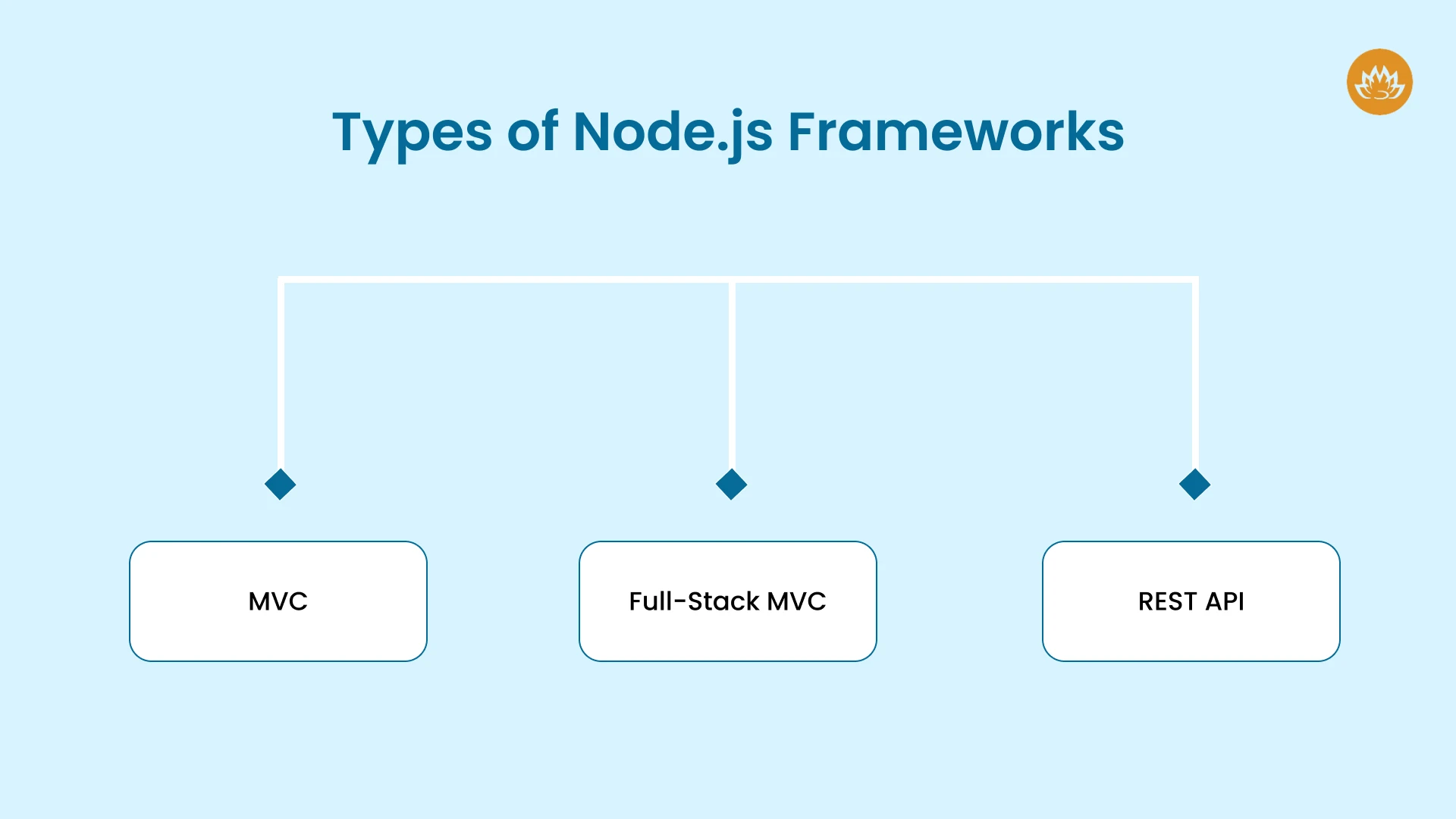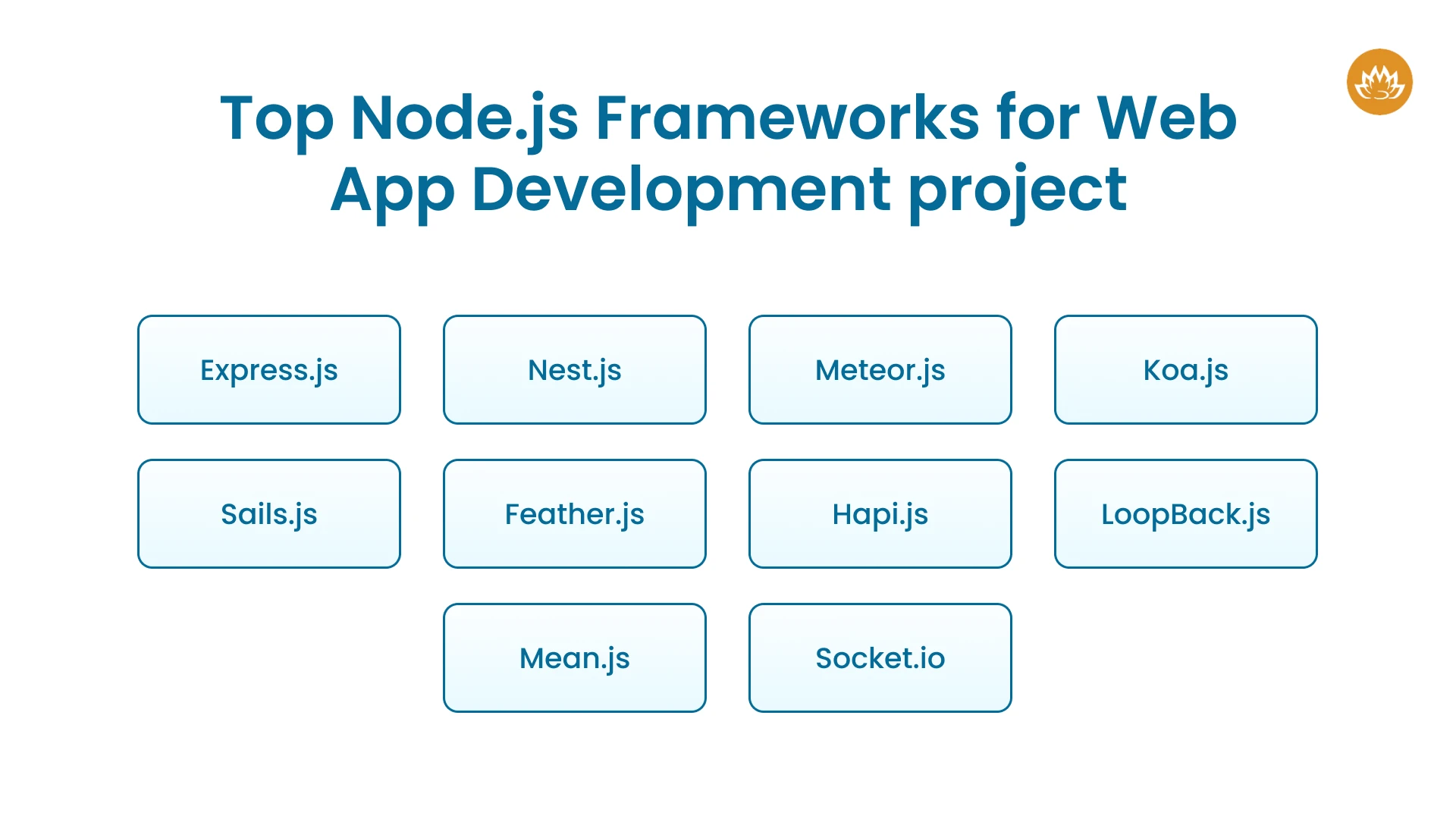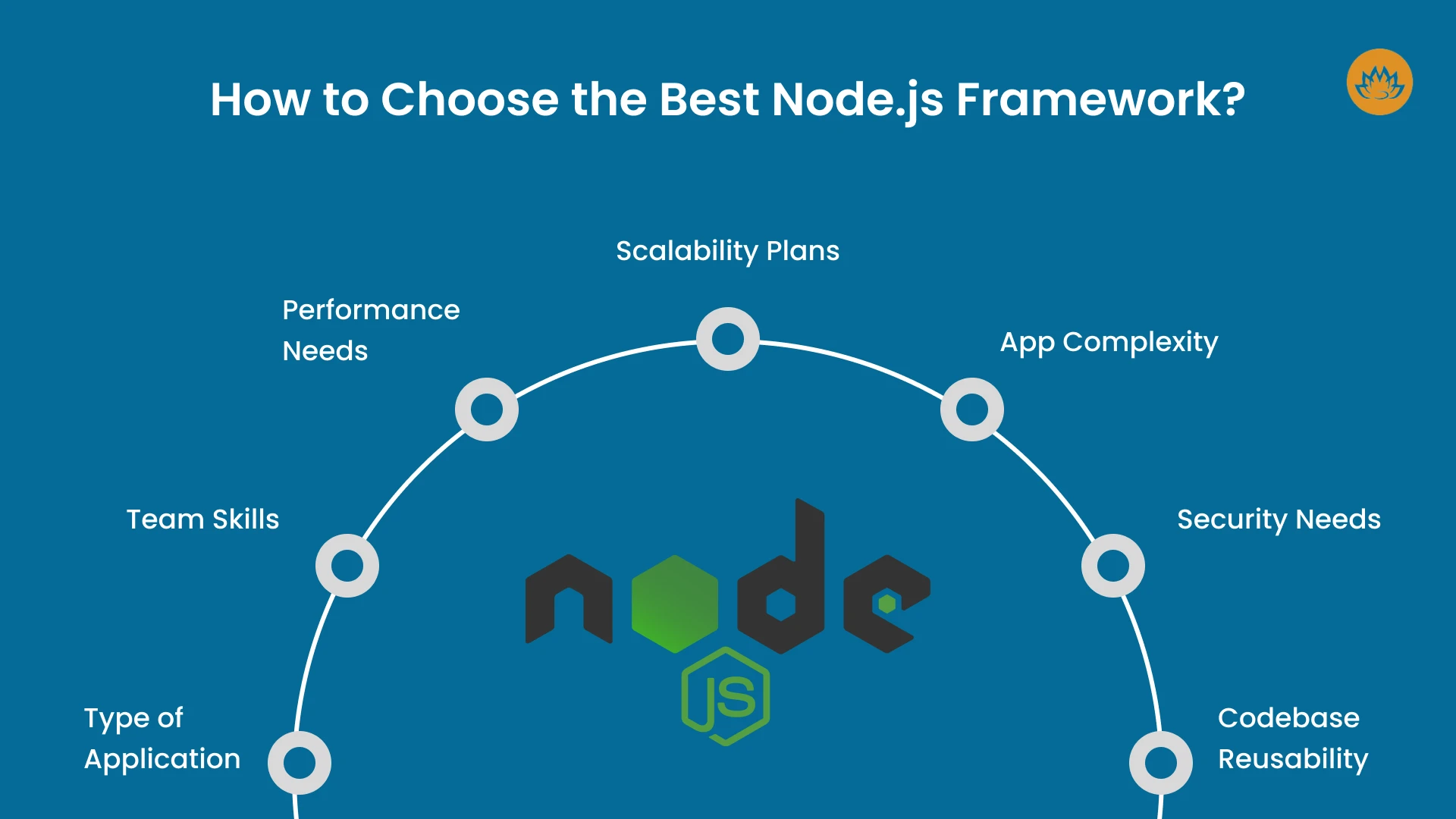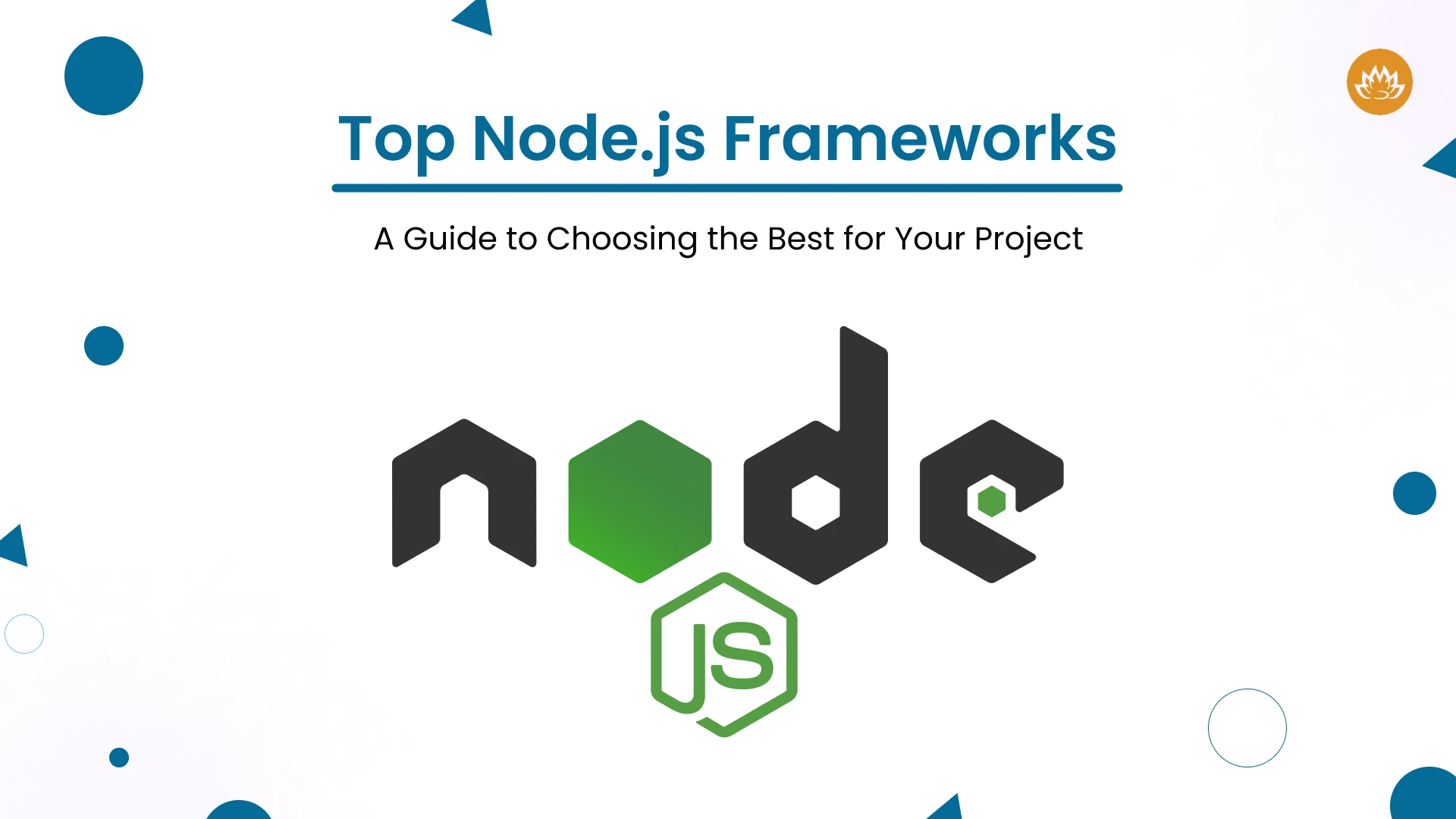What are Node.js Frameworks?
Various Types of Node.js Frameworks

Node.js frameworks are classified into three groups based on how they support a certain use case in the development lifecycle:
MVC
Model-view-controller (MVC) frameworks use a unique design pattern that divides application logic into three interconnected elements: models, views, and controllers. MVC frameworks separate the business logic of the app and display to create a more efficient division of labor, improving the application’s scalability and maintainability.
Full-Stack MVC
Full-stack MVC frameworks provide tools for developing both the front-end and back-end of applications, avoiding using several frameworks. They also provide libraries, scaffolding, template engines, and other features to give users a fully formed interface.
REST API
REST API frameworks provide a rapid and flexible construction experience by leveraging REST APIs. These APIs offer smooth client-server interaction and allow developers to add new features to an app simply.
Top Node.js Frameworks You Must Use For Your Web App Development Project.

Express.js
Top Features:
- Has rapid server-side development packages
- High test coverage
- Very high-performing with multiple processes that are executed asynchronously.
- Can support multiple template engine
- Can integrate with SQL and NoSQL database
- Easy to negotiate content with URLs and HTTP protocol
Nest.js
Top Features:
- Can easily integrate with frameworks like Express
- Compatible with Angular on the front end
- Small learning curve
- Large developer community
- External libraries are very systematic and easy to use.
Meteor.js
Top Features:
- Cross-platform framework
- Rapid prototyping with CLI
- Full stack solution
- Lightweight and feature-rich
- Easy to integrate with other frameworks
Koa.js
Many of Express’s plugins and libraries have been ported to Koa, allowing you to benefit from Express’s flexibility while keeping Koa’s complexity modest. Koa is a modern framework with excellent error handling and high customization. Its scope is constantly expanding.
Top Features:
- High personalization with cascading middleware
- Code resolution inconsistencies that increase maintainability
- Ability to leverage Express’s rich ecosystem of libraries and packages.
Sails.js
Top Features:
- Reusable security policies
- Angular support
- Object-relational mapping with databases for compatibility
- Can integrate with Express and Socket.io
Feather.js
Top Features:
- Has lightweight codebase
- Is reusable in terms of services and functions
- Automatic RESTful APIs
- Command line interface
Hapi.js
Top Features:
- Support for secure defaults
- Minimal overhead
- High scalability
- Fast and easy debugging
- Vast ecosystem of libraries
LoopBack.js
Top Features:
- High extensibility
- Provides support for multiple databases
- In-built client API explorer
- Rich in-built modules
- Full stack development
- Well structured codebase
MEan.js
Top Features:
- It has a huge collection of libraries
- Sizeable community support
- Low memory overhead
- Lightweight and easy to use
Socket.io
Top Features:
- Provides binary support between clients and server
- Auto reconnection support
- Multiplexing support
- Error detection and auto-correction
- APIs similar for client and server-side development
How Should You Choose the Best Node.js Framework?

Type of Application
Team Skills
Performance Needs
Scalability Plans
App Complexity
Security Needs
Codebase Reusability
Conclusion
Author
-

Kirtan is CEO of Whitelotus Corporation, an emerging tech agency aimed to empower startups and enterprises around the world by its digital software solutions such as mobile and web applications. As a CEO, he plays key role in business development by bringing innovation through latest technical service offering, creating various strategic partnerships, and help build company's global reputation by delivering excellence to customers.
View all posts












